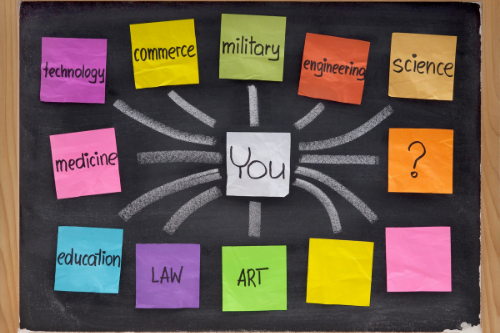Table of Contents
Career guidance | An overview for you!
According to the United States Bureau of Labor Statistics (2020), the demand for career counselors is projected to increase by 11 percent between 2020 and 2030. This is significantly faster than the average growth rate of demands across other occupations. Career counseling is one of the many services offered to students and professionals seeking information and guidance in their professional path. Career guidance contributes to effective professional decision-making, especially due to the rise in complexity of choices in the highly dynamic global business environment.
Keep reading to discover everything you should know about career guidance and why you need to consider it.
What is career guidance?
Career counseling understands your abilities, interests, and work trends to help you make an informed decision about your education & career trajectory. As a broad term, counseling refers to the process of providing guidance, moral support, and space to explore several solutions to a specific problem.
Career guidance sessions by professionals strive to understand the following –
- Human Behavior
- Personality Types & Traits
- Inherent Thought Process
- Inherent Behavior Patterns
- Interests
- Educational Goals
- Career Goals
There are various career counselors you can reach out to help you make the right decisions in times of uncertainty. A single session can provide significant insight into your motivations, potential, aptitude, and skills.
What are the benefits of career guidance?

A reputed career guidance provider will have the relevant skills required to help you establish workable educational and professional plans. Planning your career often requires the insights and advice of professionals trained in the field, apart from advice from family & friends. Here are 3 popular benefits of undergoing career guidance sessions –
1. Significant clarity into career goals
Career growth is a lifelong process, and guidance is often provided to students as well as seasoned professionals. A career counseling session will raise important questions and help you find answers to these life-defining questions.
Some questions that you may have to answer in a session include –
- What are your interests, values, and preferences with regard to your professional life?
- What kind of relationship do you want to have with your leaders and managers?
- How do you deal with studying or work-related conflicts?
- What is your best strategy to overcome hurdles in your educational and professional journey?
2. Determine your interests and strengths
A qualified career counselor will be able to use several career assessment tools to help find you relevant opportunities. The assessment tools used by career guidance professionals can help you identify your innate abilities, strengths & skills. A good career counseling session will direct your career and will be able to make you accountable for the achievement of your goals.
3. Segregate your available options
A professional career guidance provider will be able to discuss a plethora of professional options that are relevant to you. They will also provide you with reliable resources and accurate sources of information. A few factors that influence your career options are –
- Interests
- Personality
- Capabilities
- Values
- Educational Background
What can I expect from a career guidance session?

A typical career guidance session will provide you with the following:
1. Safe & Secure Environment
You will be given a safe and non-judgmental environment that allows you to talk about your educational and career goals and ways to achieve them.
2. Qualified Professional
Educational counselors need to have a state-issued license to practice counseling with clients. Therefore, a career counselor is an expert who is trained to provide relevant insights into the current educational and corporate world. They will –
- Help you figure out what you want/need for your education
- Be a safe authority you can share your thoughts, ideas, and feelings about your choices with
- Help you identify the factors that contribute to your career development
- Equip you with access to relevant sources of information & resources for guidance
- Help you create an elaborate plan to achieve your educational and/or professional goal
3. Confidentiality Agreement
Every career counselor signs a confidentiality agreement with their client. These professionals are trained to guide you without judgment and with the utmost respect for privacy.
Read more: 5 Ways to Boost Employment Success for International Students
Key Takeaways
- Career guidance is fast becoming one of the most sought-after services in the educational & professional industry.
- A student or professional at any stage of their career can opt for a guidance session to gain clarity on their available options and course of action.
- There are several benefits to career counseling. These include an understanding of your strengths & interests and educational & professional goals.
- A good career counseling session will provide you with a secure environment and a trusted professional to help you understand your situation.
Liked this blog? Read How to choose a career that’s perfect for you | Five helpful insider tips!
FAQs
Q1. Will my career counselor provide me with a schedule to help me achieve my goals?
Answer – A career counselor will not directly give you a schedule. They will equip you with the relevant knowledge you need to construct a schedule taking into consideration all dependent factors.
Q2. How much does a typical career counseling session cost?
Answer – While the cost can vary from provider to provider, a typical session is should be between USD 75 and USD 150.
Q3. How long do career guidance sessions last?
Answer – Career guidance sessions typically last an hour and can be required twice or thrice over 2 to 3 weeks, depending on your counselor and requirements.







It’s pretty interesting, love it